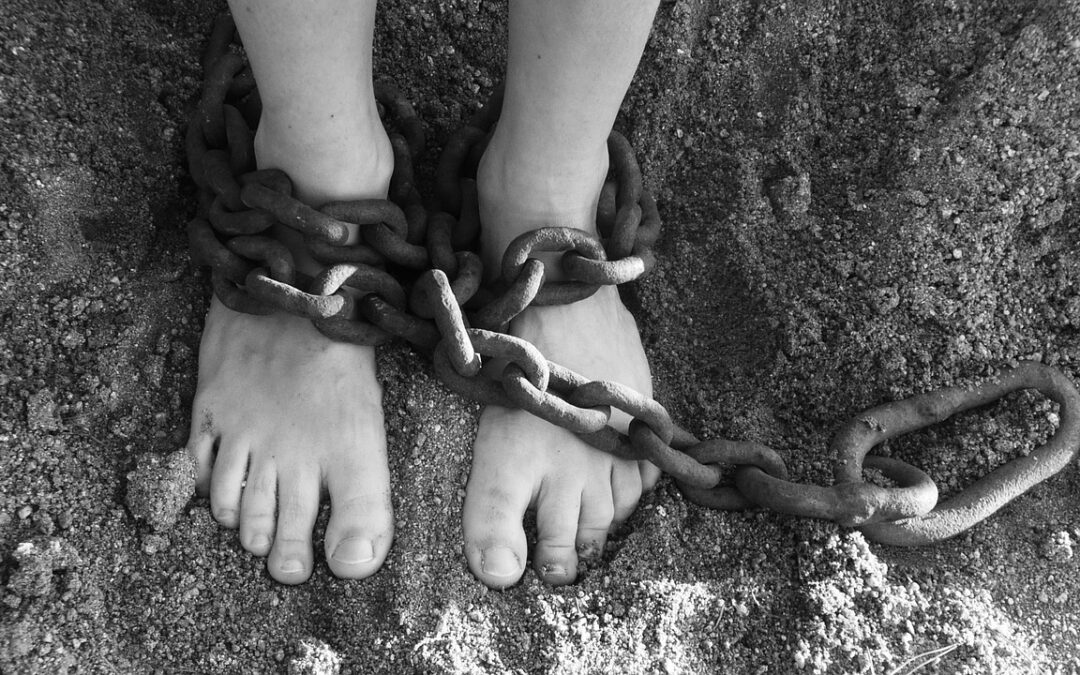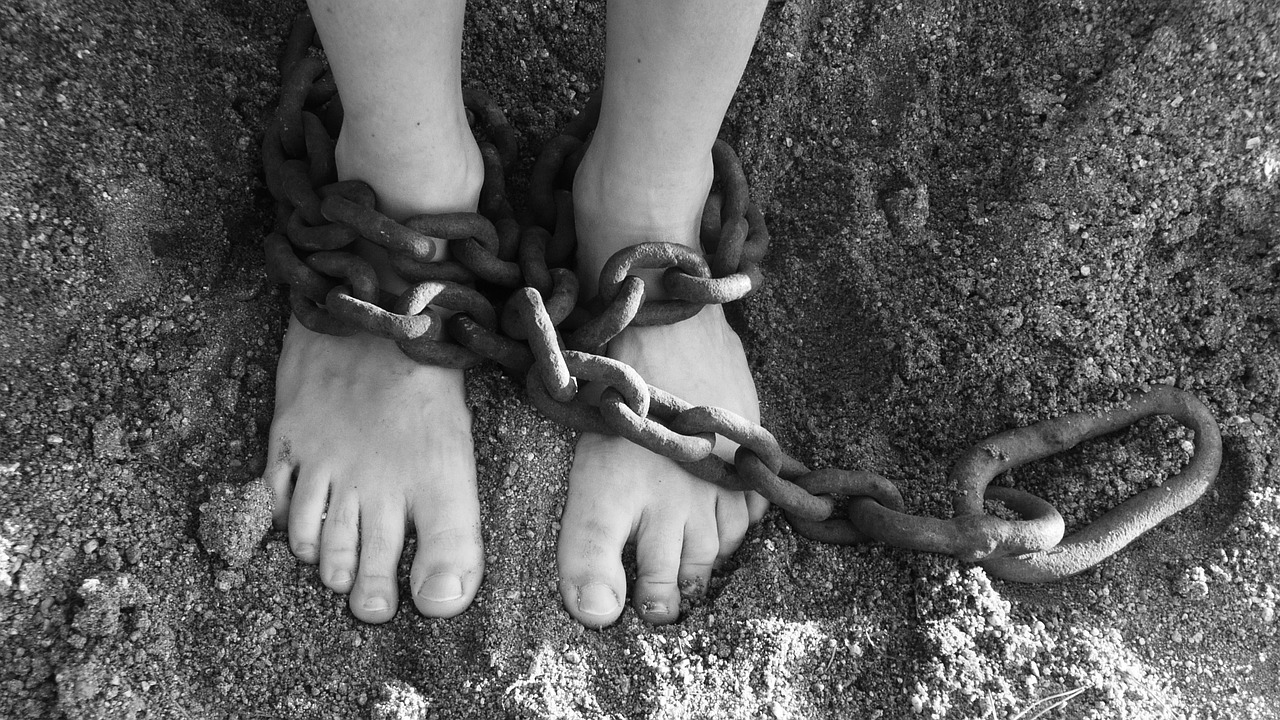
In the Beginning: The Fall
The Fall
By Chris.

I began the new year with the goal to read the whole Bible once through. Interestingly, before the year, I had been reading in Romans and had been stuck in chapters 6-8, attempting to sort out and understand the deep theology there. When I started Genesis, right from the start, I noticed a strong correlation with The Fall and Paul’s discussion of the law and the righteousness thereof. I believe a comparison of the two demonstrate at a minimum, a similarity, if not an equivalence of the law or commandments of God to the fruit of tree of good and evil. Both are necessary so that sin might be recognized as sin and so that we may learn to hate sin.
Let’s start at the creation of man.
Genesis 2:25: “The man and his wife were both naked, and they felt no shame.” This is emphasized because they had not yet partaken of the fruit, and did not know good from evil. This does not mean that Adam and Eve were incapable of committing sin, only that if they did so, they would be doing it in ignorance and without the knowledge of what sin is.
However, ignorance of the sinfulness of an act does not make the act not a sin. In Numbers 15:22-25 we see of the offerings that were to be made for unintentional sins. They were still wrong, albeit a lesser wrong than purposeful actions against God. Even Paul recognized that he “acted in ignorance and unbelief” and as a result considered himself the worst of the sinners. 1 Timothy 1:13-15.
Thus, ignorant sin is still sin.
This is similar to the time prior to the law of Moses. In Romans 7, Paul speaks of the law and the ignorance before the law. Verse 7 says, “Is the law sinful? Certainly not! Nevertheless, I would not have known what sin was had it not been for the law. For I would not have known what coveting really was if the law had not said, ‘You shall not covet.’” In other words, he would have continued in ignorance had it not been for the law.
Adam and Eve were naked and felt no shame, because they did not know good from evil. Genesis 2:25. However, once their eyes were opened, i.e., once they recognized the law, they felt shame and realized they were naked and sewed fig leaves to cover their nakedness. Genesis 3:6.
We go on through Genesis 2:16: “You are free to eat from any tree in the garden; but you must not eat from the tree of the knowledge of good and evil, for when you eat of it you will surely die.”
Let’s compare this passage with Romans 7:8 “But sin, seizing the opportunity afforded by the commandment, produced in me every kind of coveting. For apart for the law, sin was dead. Once I was alive apart from the law; but when the commandment came, sin sprang to life and I died.”
There is a lot here.
First, the way God commanded Adam is not typical of God’s commands. In the OT we see God giving the ten commandments, and almost all begin with “You shall” or “You shall not.” All are direct commands, specifically saying to do or not to do. None give specific consequences for violating each of these.
In Genesis regarding the tree, however, He says “you must not” followed by the resulting consequence, not “if” you eat of the fruit, but “when” you eat of the fruit. I’ve compared multiple English-language versions of this passage and there is no “if,” only “when,” as though God was planning on it. Indeed, an all-knowing God was planning on it and knew exactly what would happen.
Don’t get me wrong here, there was a commandment and it was violated by Adam and Eve. Make no mistake about that. However, it was God’s plan that they violate this commandment; the need for a Savior was apparent right from the start. If they had not violated this commandment, they would not know good from evil.
This is what Paul explained in Romans 7:13 “Did that which is good (the commandment), then become death to me? By no means! Nevertheless, in order that sin might be recognized as sin, it used what is good to bring about my death, so that through the commandment sin might become utterly sinful.” (emphasis added).
In other words, there was sin prior to the commandment, however, it was ignorant sin. After the commandment, sin became “utterly sinful,” thus it was no longer ignorant – it was to be recognized, abhorred, and hated. Indeed, this is one of the laws specific purposes. “The law was brought in so that the trespass might increase.” Romans 5:20
Take note here as well, sin used “what is good,” to bring about death. The commandment is good, just as the tree of the knowledge of good and evil is good! Indeed, everything that God creates is good! Sin would have never been “utterly sinful” had it not been for the recognition that sin is sin; thus, it was necessary for the partaking of the fruit, as it was necessary for the commandment to arise that we not covet.
However, the law, the mere knowledge of what is good and evil, is not enough for us to hate and avoid sin, for we are weak, we are of the flesh. “For we know that the law is spiritual, but I am of the flesh, sold under sin.” Romans 7:14
Let’s continue through Genesis. Eve bore Cain and Abel, and Abel kept flocks and Cain “worked the soil.” Genesis 4:2. Both brought offerings before God, but the offering from Cain was not acceptable. Feeling downcast because of his insufficient offering, his actions, God spoke to Cain saying, “Why is your face downcast? If you do what is right, will you not be accepted? But if you do not what is right, sin is crouching at your door; it desires to have you, but you must master it.” (emphasis added).
Note the command from God at the end of this line – similar to the language forbidding partaking of the fruit “you must not eat” and “you must master it.”
However, Paul makes it clear that we alone can never master sin, indeed, sin is our master without Christ. “For I know that good itself does not dwell in me, that is, in my sinful nature. For I have the desire to do what is good, but I cannot carry it out. For I do not do the good I want to do, but the evil I do not want to do—this I keep on doing…So then, I myself in my mind am a slave to God’s law, but in my sinful nature a slave (opposite of a master) to the law of sin.” Romans 7:18-25
So what are we to do? The law is good, however, like tree the knowledge of good and evil, it has only revealed my utter sinfulness, sinfulness which I cannot master, though it is commanded of God. As Paul concludes in verse 25, “Thanks be to God, who delivers me through Jesus Christ our Lord!” Indeed, we cannot save ourselves, we continue to be slaves of sin and cannot work ourselves out of our sinful nature.
Clearly, we cannot master sin or live perfectly, which is why God provided a savior. There has only been one who has mastered sin, the only one who lived a perfect life.
Paul goes on: “For what the law was powerless to do because it was weakened by the flesh, God did by sending his own Son in the likeness of sinful flesh to be a sin offering in order that the righteous requirement of the law might be fully met in us, who do not live according to the flesh but according to the Spirit.”
Further, the “former regulation is set aside because it was weak and useless (for the law made nothing perfect), and a better hope is introduced, by which we draw near to God.” Hebrews 7:18-19 (parenthetical in original). “Therefore, he is able to save completely those who come to God through him, because he always lives to intercede for them.” Hebrews 7:25.
In short, God wants us to hate our sin. While I am no master of theology or preacher of any kind, I do not believe there is a biblical basis for the belief among many Christians that if Adam had just not eaten of the fruit, everything would have been perfect and we would all have been living according to God’s original plan. God knows how we will respond and he doesn’t need a “plan B.” I just don’t think the Bible proposes that and I think an all-knowing God knew exactly what He was doing and knew exactly how man would respond, indeed, how he planned man to respond. He gave the law, and the knowledge of the law (or of good and evil) so that sin could become “utterly sinful” and hated by us; so that we could see the evil and the good and choose the good. However, like Paul who exclaimed what a “wretched man” he was due to his sins, we need to have a similar disdain for our sins rather than continuing to “nibble on the nastiness of this world.” The Fall was necessary, as was the law, however, neither bring us to salvation or allow us to master the flesh. It is only through Christ that we are saved and it is only through Christ that we can overcome the flesh. As Christ has overcome the world, everyone who loves him and believes in him overcomes the world. 1 John 5:3-5.






Recent Comments